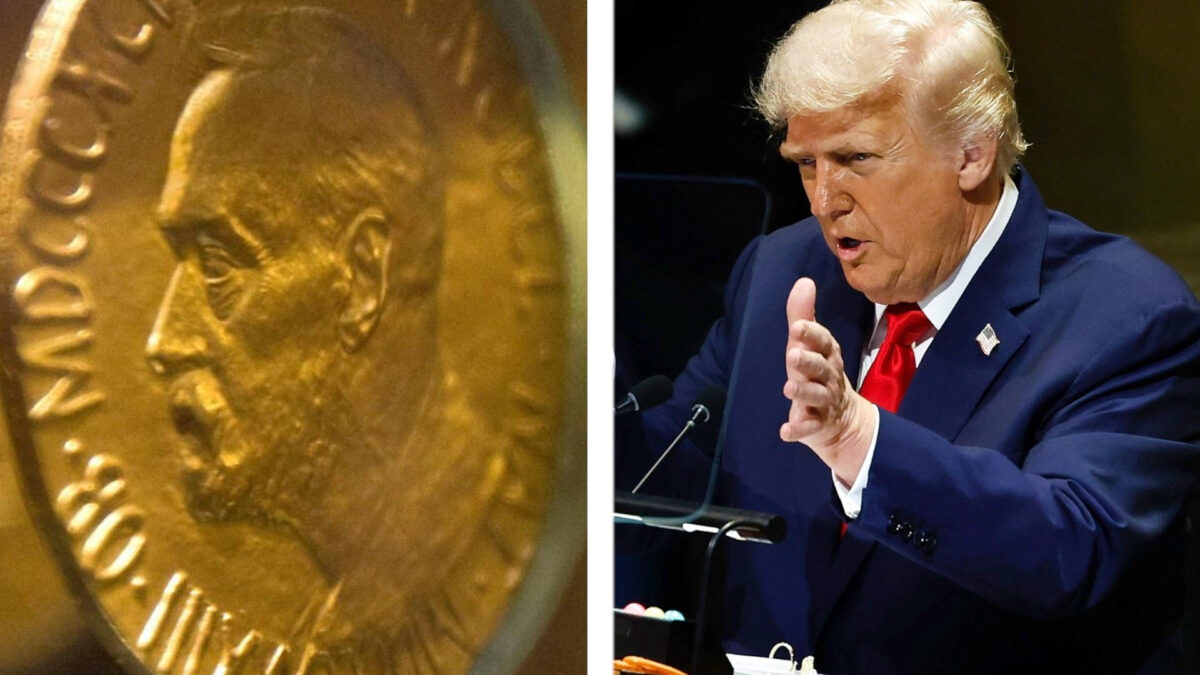There’s something almost comical about the Nobel Committee pretending to float above the political fray while sitting atop a pile of increasingly political decisions. The latest example? Their awkward sidestep when pressed on why President Donald J. Trump wasn’t awarded the 2025 Nobel Peace Prize—despite securing a historic peace deal between Israel and Hamas that, by any standard, qualifies as a major breakthrough.
Now, let’s be clear: the technical reason offered is that the deadline for nominations was January 31st—mere days into Trump’s second term. In other words, too soon for his recent accomplishments to be considered. A fair procedural argument, if that’s where they had left it.
But Nobel Committee chair Jørgen Watne Frydnes couldn’t resist veering into ambiguity. Instead of simply citing the deadline, he waxed poetic about how the committee sits in a “room filled with the portraits of all laureates,” which is “filled with both courage and integrity.” As if to imply—without saying it outright—that one particular nominee lacked those qualities.
He never names Trump. He doesn’t have to.
The insinuation is there, hanging in the air like the scent of selective morality. It’s the same pattern we’ve seen before: when Trump secured multiple Arab-Israeli normalization deals under the Abraham Accords, there was a flurry of nominations, applause from foreign leaders, and even cautious admiration from the press. But the prize? It went elsewhere. Every time.
This year’s winner, Venezuela’s opposition leader María Corina Machado, is a courageous figure in her own right, no doubt. But the contrast is glaring. Trump is one of the few modern leaders to secure actual, tangible peace between warring nations—not just speak about it. Yet, in the eyes of the Nobel Committee, that still isn’t quite enough.
Benjamin Netanyahu’s call to give Trump the Nobel Peace Prize wasn’t subtle, nor was it unjustified. Posting an AI-generated image of Trump wearing the medal, he voiced what many are thinking: if not now, when? And more importantly—if not him, who?
The truth, uncomfortable as it may be for some, is that Trump’s peace-making record in his second term has already eclipsed that of most recent laureates. His involvement in tamping down the Russia-Ukraine conflict, in reshaping diplomatic pathways between long-standing adversaries, and now in helping to broker a ceasefire in one of the world’s most combustible regions—these aren’t campaign slogans. They’re historical facts.
But it appears the Nobel Peace Prize has moved away from its original intent: recognizing the concrete achievement of peace. In recent decades, the prize has become just as much about image, narrative, and ideological comfort as about measurable results.
So the Nobel Committee may posture about legacy and moral integrity, seated among the portraits of laureates past. But if the portraits could speak, some of them might ask why someone who actually delivered peace keeps getting passed over in favor of those who merely promise it.



